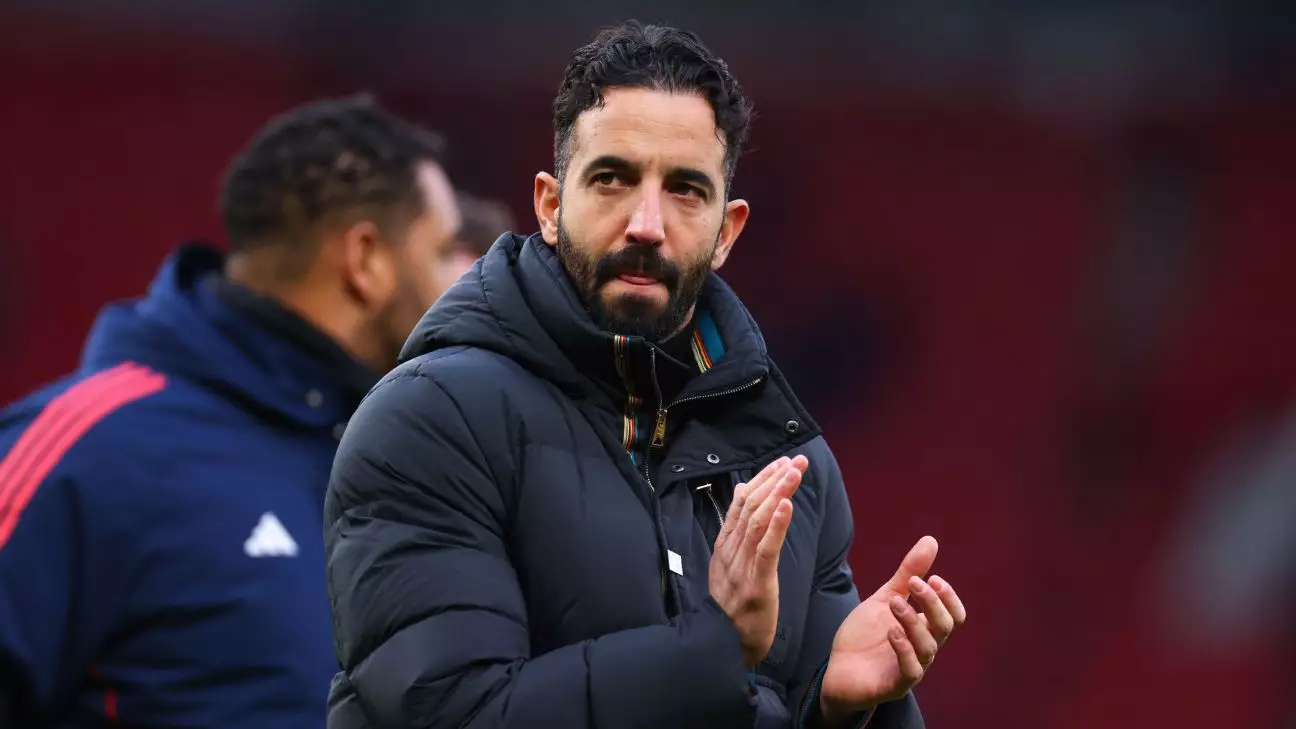In recent months, Manchester United has faced a bleak outlook, with significant job cuts becoming an unfortunate reality for many of its dedicated staff. The club, under the stewardship of part-owner Sir Jim Ratcliffe, made the decision to let go of 250 employees over the summer in a bid to address the stark financial challenges that have plagued the organization. The reported losses of £300 million over the past three years illustrate a precarious situation that has worsened due to a lackluster performance on the pitch. The ramifications of these financial decisions extend beyond the boardroom; they ripple through the entire community connected to the club, affecting the livelihood of countless employees who have devoted themselves to its success.
The issues at Manchester United highlight a growing urgency for accountability. New manager Ruben Amorim has publicly acknowledged that the first team has an obligation to respond meaningfully to the financial strains and job losses. This call for reflection is not merely a public relations tactic; it points to a deeper understanding that the players and coaching staff hold significant sway over the club’s financial health through their performance. If the team continues to underperform, further cuts are imminent, exacerbating the already tense environment that staff are navigating daily.
Amorim’s remarks about the need for the first team to take responsibility for improving results encapsulate a paradigm shift that is necessary for Manchester United’s revival. In a context where the club failed to secure a place in the prestigious Champions League last season, the financial constraints significantly limit its operational flexibility. The current season has shown no signs of a turnaround so far, with the team struggling in the lower echelons of the Premier League—a worrying 14th place before a critical fixture against Tottenham Hotspur.
Reflecting on the implications of poor performance, Amorim articulated a sentiment that resonates with anyone acquainted with the rigors of professional sports: “It’s hard to feel secure in your job when the team is not winning,” he lamented. This acknowledgment lays bare the reality that the players and coaches must not only seek improvement for personal ambition but must also understand the wider impact of their actions within the organization. The urgency to deliver results is not simply for glory but also for safeguarding livelihoods, making their responsibility even more critical.
As the financial landscape continues to shift, Manchester United has been forced to explore various avenues for revenue generation, including the controversial decision to increase ticket prices. Such measures have drawn mixed reactions from the fanbase, with many advocates arguing that the emotional connection to the club should not be commodified at the expense of long-term supporters. Fans are aware that high ticket prices are a direct consequence of the club’s financial distress, leading to a delicate balancing act in which the immersive experience is weighed against the harsh realities of operating a failing business model.
Amorim’s perspective emphasizes that victories on the pitch must be prioritized to counteract the necessity for such measures. Winning against Tottenham may seem like a small step, but for the fans and staff, it represents a glimmer of hope—a potential shift in momentum that could catalyze a chain reaction of positive change for the club. It serves as a reminder that the players’ performance can influence the atmosphere and financial balance at Manchester United.
The journey ahead for Manchester United remains fraught with challenges. Amorim’s observations underscore the necessity for a renewed commitment from the players and staff to rebuild the team’s reputation and, in turn, the club’s financial standing. Recognizing that difficult decisions lie ahead, United’s administration has alerted its fan base to be prepared for more changes, asserting the likelihood of unpleasant choices in order to meet financial targets and secure compliance with professional standards.
In light of these realities, the call for accountability serves not only as a directive for immediate change but also as a rallying cry for the wider Manchester United community. It is a plea to recognize the interconnectedness of performance, financial health, and community responsibilities. Further job losses, ticket price hikes, and dwindling support are all intertwined with the performance on the pitch. As it stands, the hope remains that this acknowledgment is the first step towards a more resilient and responsive Manchester United, one that can navigate its current predicament and emerge stronger on the other side.

Leave a Reply